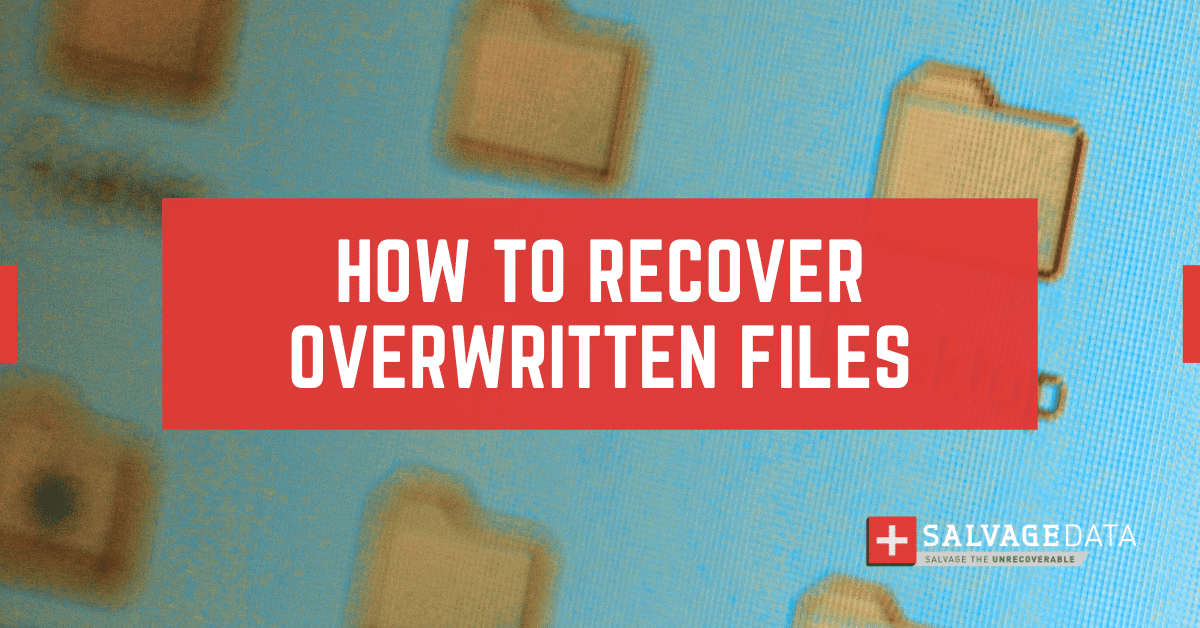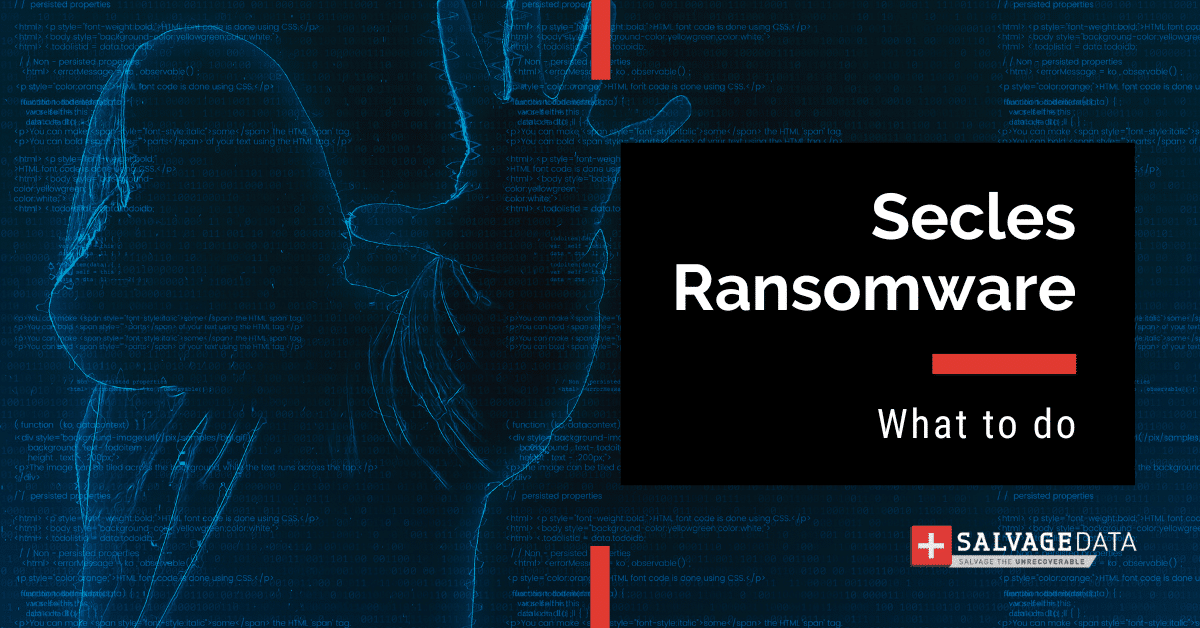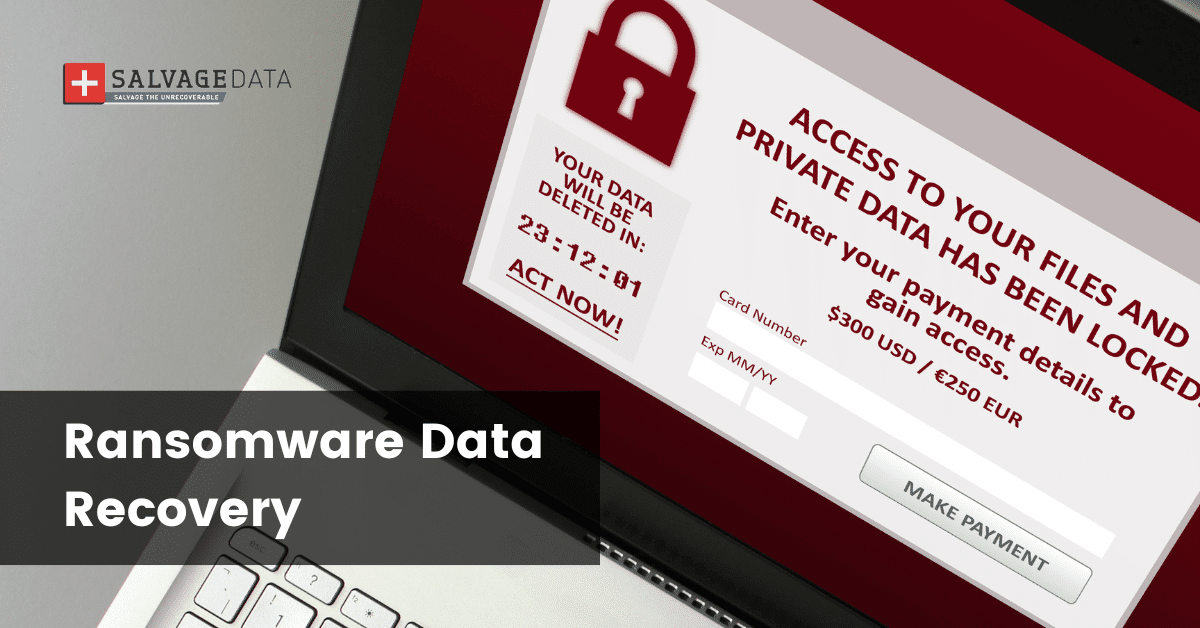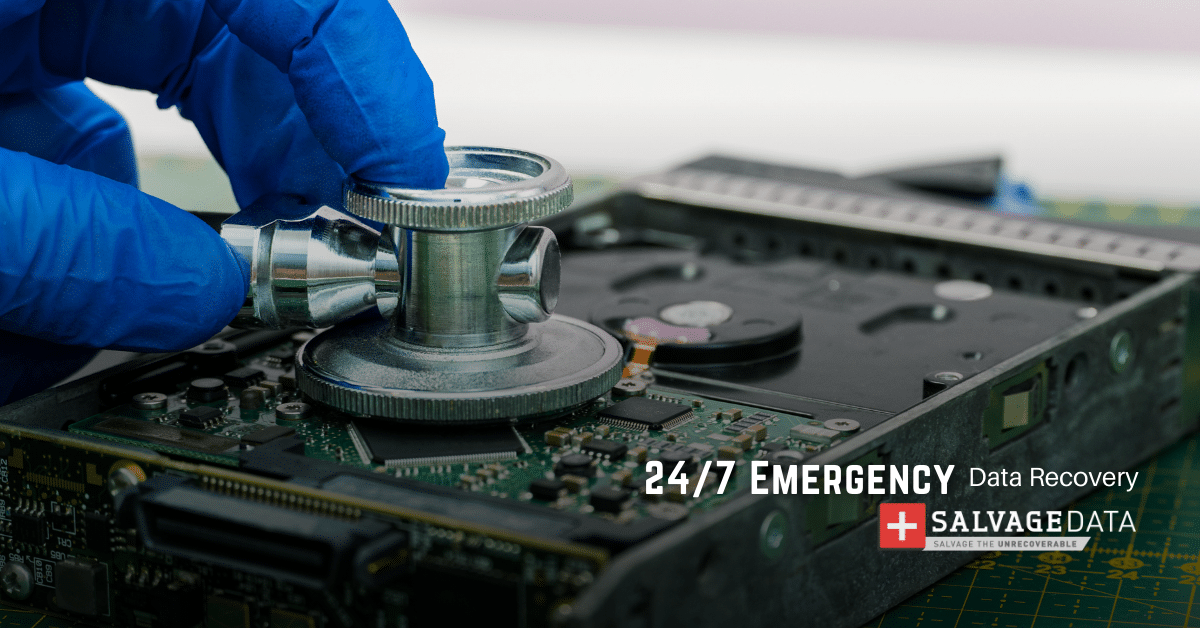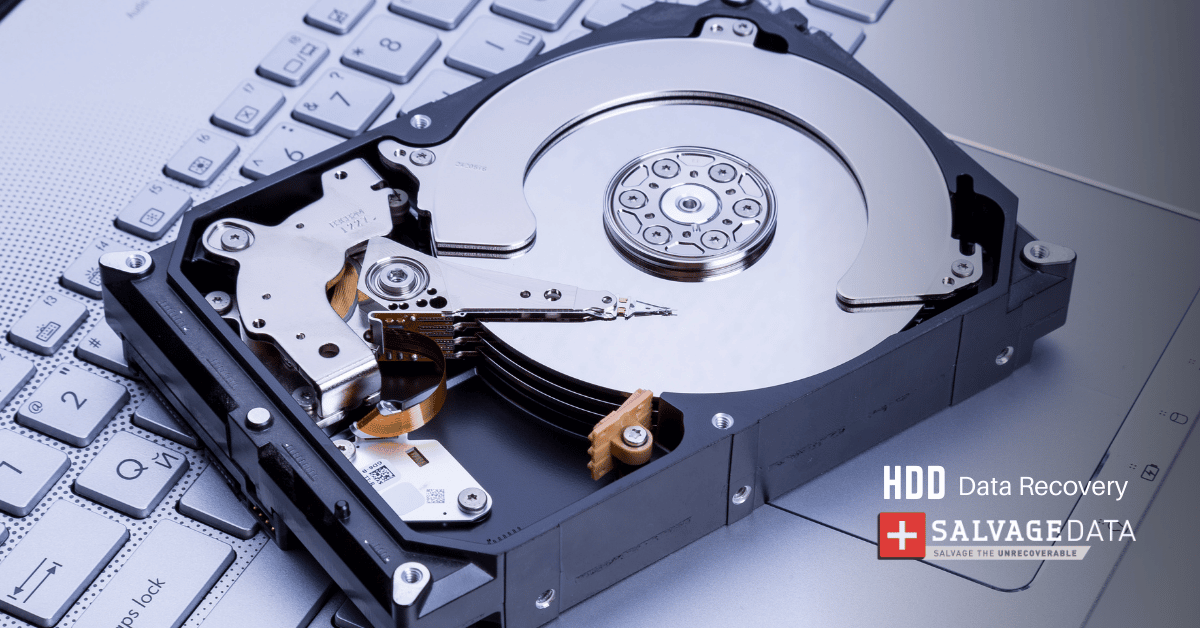Recent Articles
How To Recover Overwritten Files
The Snowflake Data Breach: A Comprehensive Overview
Mac Not Recognizing External Hard Drive: Quick Fix Solutions
How Multi-Cloud Backup Solutions Can Prevent Data Disasters
Capibara Ransomware: What is it & How to Remove
What Should a Company Do After a Data Breach: The Ticketmaster Incident
Secles Ransomware: Removal Guide
What To Do When Your Chromebook Freezes
How to Create Hyper-V Backup
What Is The Best Data Recovery Software For PC

I think there's an issue with my storage device, but I'm not sure Start a free evaluation →
I need help getting my data back right now Call now (800) 972-3282
LeChiffre Ransomware is a type of malware that encrypts files on your computer, making them unusable. It then demands a ransom be paid to decrypt the files.
How does LeChiffre Ransomware work?
LeChiffre usually arrives on your computer through email attachments or by visiting malicious websites. Once it’s installed, LeChiffre will scan your computer for files to encrypt. Once it has encrypted a file, this ransomware will add the “.lechiffre” extension to the encrypted file’s name. Ransomware will then display a ransom note, which will instruct you on how to pay the ransom and decrypt your files.
What types of files does LeChiffre encrypt?
This ransomware usually targets files that are commonly used, such as documents, images, and videos.
What encryption algorithm does LeChiffre Ransomware use?
It uses the RSA-2048 encryption algorithm to encrypt files.
How much does LeChiffre Ransomware cost?
LeChiffre Ransomware usually demands a ransom of 2 Bitcoins. But the amount can vary depending on the LeChiffre Ransomware variant.
Attackers usually threaten to delete the encryption key if you do not pay the ransom within a certain time frame, which typically ranges from 7 to 14 days. Also, some LeChiffre Ransomware variants threaten to double the ransom if you don’t pay within the specified time frame.
History
This ransomware was first discovered in May 2017.
The biggest LeChiffre Ransomware attack occurred in June 2017 when the LeChiffre Ransomware variant known as “Petya” began spreading rapidly through a phishing email campaign. The Petya LeChiffre Ransomware variant encrypted not only files on infected computers but also the computer’s entire hard drive. This made it impossible to recover files even if the ransom was paid.
Protection
There are a few things you can do to protect yourself from LeChiffre Ransomware and other types of malware:
– Use a reputable antivirus program and keep it up-to-date.
– Be cautious when opening email attachments, even if they appear to be from a trusted sender.
– Don’t click on links in emails or instant messages unless you’re sure they’re safe.
– Keep your operating system and other software up-to-date with the latest security patches.
What should I do if I’m infected with LeChiffre Ransomware?
If attackers have infected you with LeChiffre Ransomware, we recommend that you do not pay the ransom. There’s no guarantee that paying the ransom will decrypt your files, and there’s a possibility that you could just end up giving your money to cybercriminals.
Instead, you should try to restore your files from a backup. If you don’t have a backup, you can try using file recovery software. However, keep in mind that LeChiffre Ransomware may have deleted your shadow copies, so this may not work. Anyway, give it a try. We built SalvageData data recovery software to help you.
Lastly, you can try using the free LeChiffre Ransomware decryptor from the Emsisoft website. However, keep in mind that this may not work on all variants of LeChiffre Ransomware.
Contact a data recovery service
If something goes wrong or you can’t get your files back, you should contact a data recovery service. Many reputable companies offer data recovery services, and they may be able to help you recover your files.
SalvageData is one of the leading data recovery services. We have successfully recovered data from LeChiffre Ransomware infections and other types of malware infections.
If you’re infected with LeChiffre Ransomware, don’t hesitate to contact us for help. Our team of experts will work tirelessly to get your data back. We offer a free consultation, and we’re always here to help.

